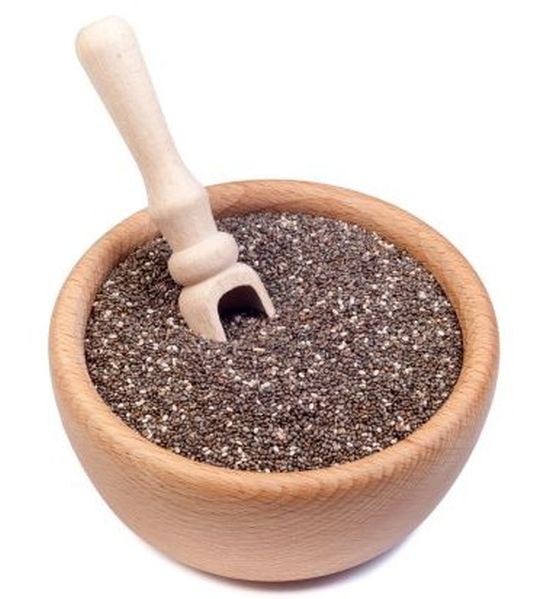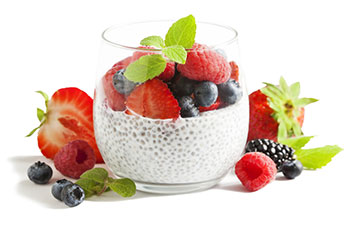The health benefits of chia seeds
What are chia seeds and where do they come from?
Chia seeds are the tiny black seeds from the Salvia hispanica plant, a member of the mint family which comes from Central and South America. Legend has it that the ancient Aztecs and Mayans used chia seeds as a source of energy.

Nutritional benefits of chia seeds
For such a small seed, chia seeds contain some important nutrients.
Chia seeds are rich in fibre – which helps with satiety, the feeling of fullness. A 25g portion of chia seeds contains approximately 9g of fibre. The daily recommended amount of fibre is 30g, so including a 25g portion of chia seeds each day could be a useful contribution. Fibre is important for a healthy digestive system and many of us do not reach the recommended target.
Omega-3 fatty acids are known for their anti-inflammatory effects, as well as enhancing brain and heart health. Chia seeds contain omega-3 in the plant form: alpha linolenic acid (ALA). It is much harder for humans to convert ALA into the form preferred by the body: DHA. Therefore the omega-3 content of chia seeds, compared to animal sources such as oily fish, is low. For those who do not eat fish, chia seeds are a welcome addition to the diet, but it’s important to recognise that conversion to DHA is minimal.
Chia seeds are relatively high in protein – so are a useful source of plant protein and provide a range of amino acids, particularly for vegetarian and vegan diets.
The combination of fat, protein and fibre means the seeds are digested relatively slowly, providing long, slow release of energy to keep blood-sugar levels stable.
Seeds are rich in minerals such as calcium and magnesium and trace elements such as manganese, which helps make enzymes.

How much have the health claims of chia seeds been researched?
Little published research concerning chia exists, and most information available is based on animal studies, not human.
Do chia seeds help you lose weight?
There is no significant evidence to back up the claim that eating chia seeds will lead to weight loss. The fibre content of chia seeds, and their ability to hold onto water, might contribute to satiety and consequently eating less. However if you are looking for weight loss, specifically eating chia seeds is not likely to have a significant effect.
Do chia seeds promote better bone health?
The benefits of chia seeds is attributed to the calcium content and other trace minerals known for their role in bone health. A 25g portion of chia contains 157mg of calcium, which is a significant source of calcium, more than that in 100ml of milk.
Do chia seeds reduce the risk of diabetes and heart disease?
Chia seeds do contain fibre, protein and unsaturated fats – all of which are known to support a healthy heart and stable blood-sugar levels. Some research has suggested that chia seeds may be beneficial for overweight and obese patients with type 2 diabetes. However there is no conclusive evidence to suggest chia seeds can directly reduce the risk of heart disease or diabetes. As part of a balanced diet, chia seeds may contribute to overall health. Other lifestyle factors such as regular exercise are more likely to have an effect.
